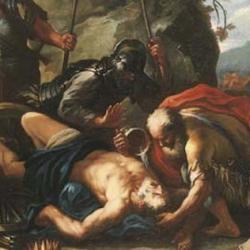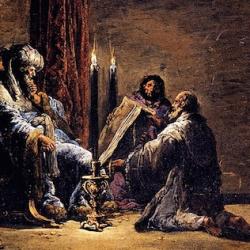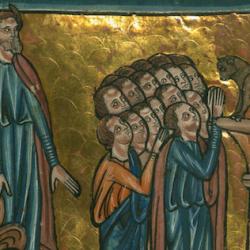David devotes a great deal of attention to organizing Levitical singers (1 Chronicles 25) and gatekeepers (1 Chronicles 26). Solomon follows David’s instructions in setting up these roles at the temple (singers, 2 Chronicles 5:12-23; 9:11; gatekeepers, 2 Chronicles 8:14).
Remarkably, after Solomon, these officials virtually drop out of the picture. We can trace several terms to make the point:
1) Asaph, one of the leaders of the Levitical musicians, is a prominent figure in David’s reign (e.g., 1 Chronicles 25:2) and listed along with Heman and Jeduthun during Solomon’s reign (2 Chronicles 5:12).
After Solomon, Asaph is mentioned only in the reigns of Jehoshaphat (2 Chronicles 20:14; Jahaziel, a prophet from the sons of Asaph), Hezekiah (29:13, 30; Asaph cited as authority on musical worship), and Josiah (35:15).
2) The verb siyr (“sing”) is distributed similarly: Solomon (5:12-23; 9:11); Jehoshaphat (20:21: singers during Jehoshaphat’s battle); Joash’s coronation (23:13); Hezekiah (29:28); and Josiah (35:15, 25).
3) And the distribution of references to “gatekeepers” is similar: Solomon (2 Chronicles 8:14); Joash (23:4, 19); Hezekiah (31:14); Josiah (34:13).
Singers and gatekeepers appear when Judah is enjoying a revival of covenant faithfulness. Guarding the holy house and singing in the house are twin signs of revival. You know that things are on the upswing in Judah when gatekeepers and singers reappear.
We can see an analogy with the heavenly sanctuary, where angels function as both singers and guardians of the throne. When singers and gatekeepers appear, Yahweh’s will is being done on earth as it is in heaven.
And, we might speculate that the two are intimately related to each other, that singing is a form of guarding and guarding a form of song.












